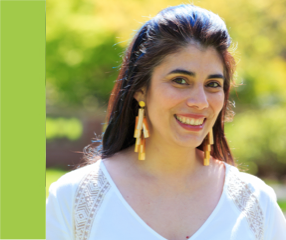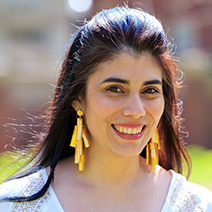
CSWS joins the Department of Cinema Studies in congratulating Priscilla Peña Ovalle, Cinema Studies associate professor and department head, as the 2019 President-Elect for the Society for Cinema and Media Studies, the leading scholarly organization in the United States dedicated to promoting a broad understanding of film, television, and related media through research and teaching grounded in the contemporary humanities tradition. The new term will begin July 1, 2019.

From the Cinema Studies website: “Priscilla Peña Ovalle is a film and television studies scholar with an interdisciplinary emphasis on race, ethnicity, gender, and sexuality focused on marginalized communities and mainstream popular culture. She was trained in theater writing and performance at the Guadalupe Cultural Arts Center in San Antonio, Texas before pursuing film and digital media production at Emerson College in Boston. Ovalle earned her PhD in Critical Studies, with an emphasis in American Studies at the University of Southern California. At USC, she worked under digital media scholars Marsha Kinder on the Labyrinth Project and Tara McPherson at the Institute for Media Literacy. Her book, Dance and the Hollywood Latina: Race, Sex, and Stardom (Rutgers, 2010) explores Latina stardom in Hollywood film. Her current multimedia project, Media/Hair/Style, addresses the production and performance of hair in music videos and commercials.
“Ovalle's early training in media production and Chicanx theater fostered a lifelong commitment to creative practice, media education, and accessible scholarship. Her research crosses boundaries between film, television, and digital media studies and practice. This multimodal orientation has helped her communicate across various disciplines and communities to find connections and opportunities that might otherwise be overlooked. As an associate professor and head of the Cinema Studies Department at the University of Oregon, Ovalle chairs a community of scholars and practitioners committed to a humanistic integration of media theory and practice. At UO, Ovalle has gained administrative and curricular experience by leading diversity initiatives and collaboratively building a cinema department invested in global and US diversity, inclusive pedagogies, and social-justice practices.”

